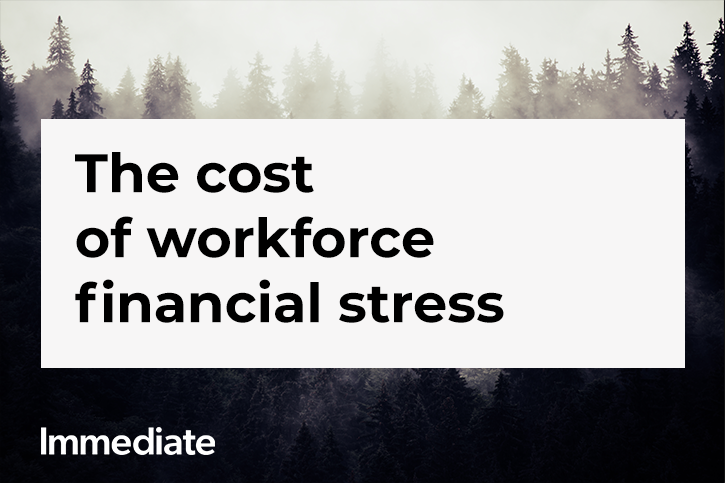The cost of workforce financial stress: 4 reasons why employee financial challenges can hurt your bottom line

Share This Post
More To Explore

Press Releases
Juvo Jobs and Immediate Partnership: Boost Hiring with On-Demand Pay
Birmingham, AL – July 24, 2023 – Juvo Jobs, the go-to platform for connecting employers with local job seekers, is thrilled to announce a new
July 23, 2024

Blog
Preserve Credit Health with On-Demand Pay
Empower your employees with Immediate’s on-demand pay solution, helping them safeguard their credit health by facilitating timely bill payments, managing emergencies without accruing debt, and
May 8, 2024
